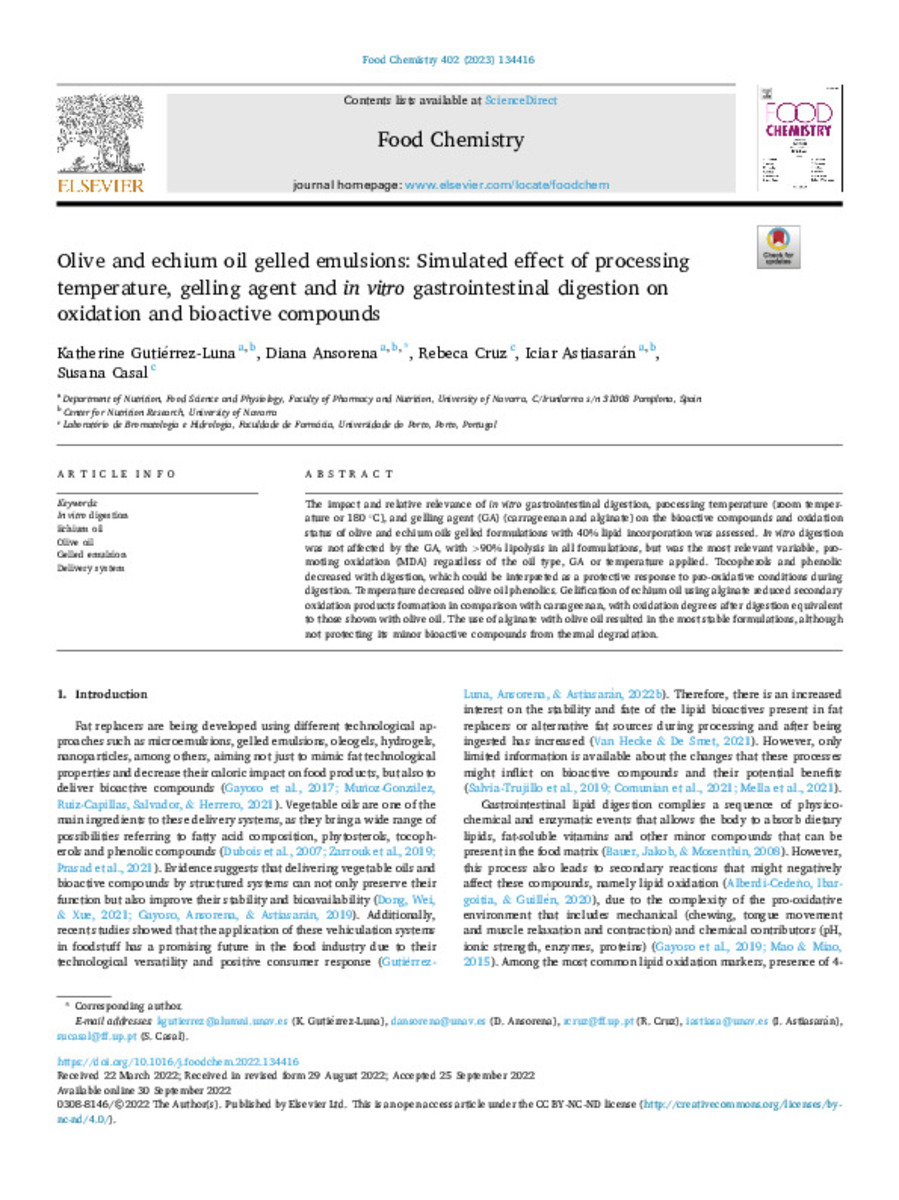Olive and echium oil gelled emulsions: Simulated effect of processing temperature, gelling agent and in vitro gastrointestinal digestion on oxidation and bioactive compounds
Keywords:
In vitro digestion
Echium oil
Olive oil
Gelled emulsion
Delivery system
Note:
This is an open access article under the CC BY-NC-ND license
Citation:
Gutiérrez-Luna, K. (Katherine); Ansorena-Artieda, D. (Diana); Cruz, R. (Rebeca); et al. "Olive and echium oil gelled emulsions: Simulated effect of processing temperature, gelling agent and in vitro gastrointestinal digestion on oxidation and bioactive compounds". Food Chemistry. 402, 2023, 134416
Statistics and impact
0 citas en

0 citas en

Items in Dadun are protected by copyright, with all rights reserved, unless otherwise indicated.











